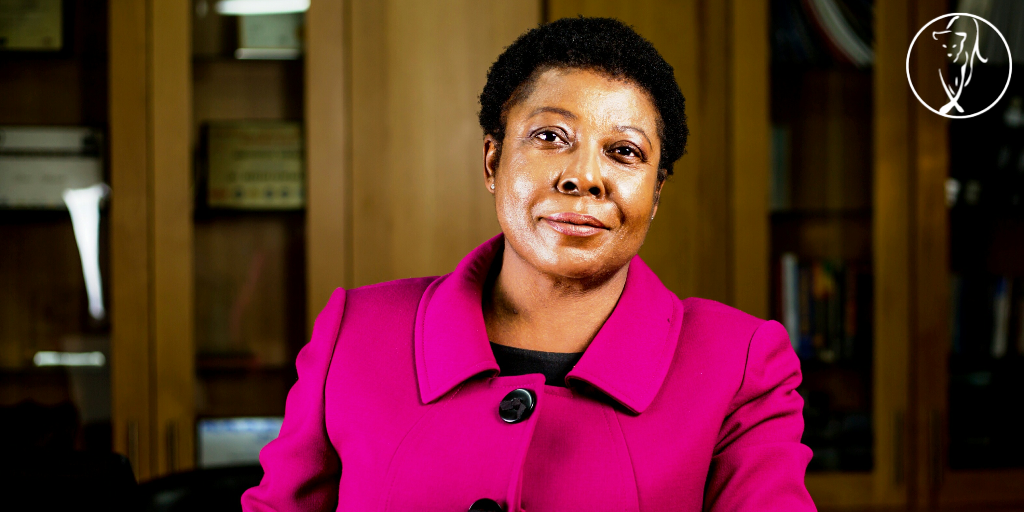
NESTLED in the lush, green heart of Africa, Zimbabwe boasts a rich tapestry of cultures and breathtaking landscapes, fertile soil and strong people.
Yet, as this resilient nation marches forward, it confronts two formidable challenges that define our era: the relentless spectre of corruption and the ever-evolving landscape of cyber security threats.
In this captivating journey, as we commemorate Cyber Awareness Month we will examine the intricacies of Zimbabwe’s struggle to fortify its digital borders, refine its statecraft, and craft resilient strategies to combat corruption amidst a complex cyber landscape and the inherent threats posed to its stability and prosperity.
A crack in the crystal
Until recently, cyber attacks against the private sector were skyrocketing year-over-year in terms of direct cost and sheer volume. Now, critical infrastructure is seemingly under constant attack, from the energy sector and the power grid to the financial, nuclear, and even health sectors.
Most of these intrusions are likely simple attempts at positioning for real attacks — including full-scale cyber war — a way of testing vulnerability and response. A scaled operation executed by sophisticated attackers would easily bleed the cloud and deny, degrade, or destroy the information currently housed in computers and networks, disrupting everything from the economy to supply chains to national defence to air travel.
Such attacks have the potential to cripple the technological systems upon which we have become reliant, but a worst-possible scenario would see cyber attacks as a forerunner to conventional assaults targeting critical physical infrastructure, natural resources and those in positions of local and national power. The country could be thrown into darkness in a matter of hours.
Complicating these risks is the fact that corruption in Zimbabwe has seamlessly transitioned into the digital realm, leaving an indelible stain on the nation’s socio-economic fabric.
- Mavhunga puts DeMbare into Chibuku quarterfinals
- Bulls to charge into Zimbabwe gold stocks
- Ndiraya concerned as goals dry up
- Letters: How solar power is transforming African farms
Keep Reading
In this new digital frontier, corrupt actors exploit vulnerabilities in the cyber landscape, perpetrating crimes that range from ransomware attacks paralysing critical infrastructure to data breaches compromising sensitive government information.
These digital manifestations of corruption pose multifaceted threats, eroding public trust, impeding economic growth, and hindering foreign investment.
Like inclusions or flaws in a rough diamond crystal, they create additional points of fragility that, given the right amount of force and pressure, will lead to catastrophic structural failure.
Such inclusions diminish the value of a stone, adding opacity and dullness where there should be fire and scintillation. They must be cut away.
That force and pressure is inherent throughout all societies, but in the atmosphere created by corruption, it increases exponentially with every hour.
Predictably, these corrupt practices extend to the abuse of digital tools and platforms for personal gain, undermining the principles of transparency and accountability in government and business operations. High-profile cases have highlighted the nexus between cyber-enabled corruption and traditional corrupt practices, with individuals leveraging their digital prowess to siphon off public funds, evade detection, or engage in money-laundering through cryptocurrency channels.
As Zimbabwe grapples with these complex challenges, the need for a comprehensive cyber security and anti-corruption strategy becomes increasingly urgent, safeguarding the nation's digital future, and ensuring a fair, prosperous, and accountable society for all its citizens.
Who stands against us?
Doomsaying and fear will get us nowhere. To effectively confront these challenges, we must first identify them with dispassionate objectivity before considering the most effective measures to secure our nation’s and fellow countrymen’s or countrywomen’s health and future. Here are some of the challenges we face:
Cyber extortion: Imagine a bustling Zimbabwean business relying heavily on its digital operations. One day an employee opens an innocuous email from a trusted sender, clicking a link to download an attachment.
Suddenly, the company’s critical data is encrypted by malicious software, locking them out of their own systems. A message from the perpetrators follow: they demand an exorbitant ransom, paid in cryptocurrency, holding the business hostage until their demands are met.
Striving to survive and swiftly resume operations, paying these ransoms may be seen as a necessary but corrupt action, inadvertently supporting criminal activities and, by validating these tactics through payments that are never publicly disclosed outside the company, all but ensuring that future attacks will be carried out with ever-higher stakes.
National data: The Zimbabwean government and businesses hold vast stores of sensitive data, ranging from citizens' personal information to critical infrastructure data.
A security breach not only compromises these data treasures but opens avenues for corrupt practices that undermine national security. Consider how easily targets for bribery could be identified with just a glance at the financial or salary information of government officials in an environment where such corruption is already taken for granted as “the cost of doing business”.
What happens when a foreign actor decides to make a play that leverages vulnerabilities in national data to exploit this institutionalised corruption? If you can answer that question, you are not even beginning to scratch the surface of the destructive potential that lies herein.
E-government challenges: As Zimbabwe moves forward with e-governance initiatives, there is an exciting promise of enhanced efficiency and accessibility. However, this digital evolution also presents a challenge.
If not fortified against cyber threats — both internal and external — these e-governance systems can expand the breeding grounds for corruption, eroding public trust in government services and putting Zimbabwe at risk of becoming, among other things, a clearing house for international criminal and terror organisations seeking access to official documents and more.
Cyber security against corruption
Cyber security stands as Zimbabwe’s stalwart guardian against the encroachment of corruption in the digital age:
The fortified vault: Strong data encryption safeguards sensitive information, rendering it virtually impenetrable to unauthorised access. In a metaphorical sense, it is like securing the nation’s secrets in an unbreakable vault, guarded by vigilant soldiers who neither sleep nor grow weary.
A digital shield: Implementing stringent cyber security protocols for e-governance initiatives not only ensures the integrity of digital services, but also guards against corrupt actors looking to exploit these new frontiers. These protocols must be proactive, continually doing what bad actors do every day: relentlessly test and reassess security vulnerabilities outside conventional ideas of what attacks could look like, and demand partnering with professionals around the world in sharing information and security strategies.
Strength in unity: Relating to the above: national cyber security always profits from a coordinated exchange of information between government and non-state sectors, as well as, a generally centralised approach to managing government systems.
It is obvious that some new thinking is necessary. Collaboration is the cornerstone of effective cyber security. By fostering public-private partnerships, Zimbabwe can tap into the expertise of the private sector, gaining knowledge, funding, and innovation to strengthen the nation’s cyber security defences.
In addition, we must begin to cultivate home-grown talent, exposing young Zimbabweans to computer science and STEM in education to ensure a corps of cyber centurions arises from each generation: The fruit of the tree of our people.
Statecraft
Effective statecraft is the cornerstone upon which Zimbabwe can build a resilient defence against corruption. This necessitates the establishment of a robust legal framework that not only defines cyber crimes, but also prescribes stringent and consistently-applied penalties for offenders.
Zimbabwe needs a unique set of defensive institutions, tools, and strategies. However, developing these institutions and tools under the current framework, administration, and laws is not an easy task. It is imperative that Zimbabwe’s legal system keeps pace with the rapidly-evolving digital landscape, ensuring that those engaged in cyber-enabled corruption face consequences commensurate with their actions, especially when those actions breach the public trust and betray offices of power and service.
I cannot over-emphasise that fostering international collaboration is pivotal in the fight against cross-border cyber threats. By engaging with neighbouring nations and global partners, Zimbabwe can share intelligence, best practices, and technological resources to collectively combat cyber crime and corruption on a broader scale.
Together, with our neighbours — whether in Africa, Asia, Europe, or the Americas — we must come to trust each other as the other’s shield, protecting their flank as they protect ours.
Additionally, statecraft in Zimbabwe should involve proactive measures, such as creating specialised cyber crime units within law enforcement agencies and investing in the capacity building of cyber security professionals to stay ahead of emerging threats.
Such measures empower the nation to detect, investigate, and prevent cyber-enabled corruption effectively, safeguarding its digital integrity and the welfare of its citizens. Only then will we begin to assume our birthright as a proud and independent nation, purified of the corruption that has dimmed its light.
Legislation and regulation
Zimbabwe must craft and rigorously enforce legislation that explicitly addresses cyber crime and corruption in the digital realm. These laws should not only deter but also punish wrongdoers with severe penalties.
In protecting our country and the integrity of our nation, we will temper justice with mercy, but justice will be as swift as the sword of nemesis in punishing those whose hubris leaves them thinking that they are above the law or that they can betray the public trust with impunity.
Capacity building
Investing in the training and education of cyber security professionals and anti-corruption experts is essential. A skilled workforce is the backbone of any effective defence strategy.
To this end, we must strengthen education, instilling Zimbabwean youth with a sense of service, courage, curiosity, and the skills to defend and preserve their motherland.
United against threats
Zimbabwe should actively engage in international collaborations. By participating in forums and sharing best practices, the nation can learn from others' experiences and gain valuable support in tackling transnational cyber threats.
A single branch can be easily snapped, but a bundle of branches can withstand a storm. Zimbabwe has strong roots, but our branches have been weakened by decades of corruption by power-seekers posing as public servants, ruthless and cruel in silencing those courageous enough to speak out.
These withering limbs have been kept in power by institutionalised rot, but as more people open their eyes and lips to see and speak the truth, they will collapse under the weight of their own decay and nourish the soil of a nation reborn.
Illuminating the path to the future
A comprehensive strategy is Zimbabwe's compass for navigating the labyrinth of cybersecurity and corruption prevention:
National cyber security strategy — The roadmap: it is time to develop and implement a comprehensive national cyber security strategy. This blueprint should outline clear objectives, actions, and timelines, serving as a roadmap for the nation’s digital security. We must be specific and unblinking in confronting the truths about our country, just as a cancer patient must be willing to accept his diagnosis before he can pour his heart into the fight for his life. This will require leaders with humility, patience, and unwavering resolve paired with an indefatigable love for Zimbabwe.
Public awareness campaigns — The torchbearers of knowledge: knowledge is power, but action is more power in application, rather than inertia and hesitation. Engaging in public awareness campaigns is crucial to educating Zimbabwe’s citizens about the risks of cybe rcrime and corruption. These campaigns inform, foster a culture of cyber security, and inspire ethical conduct; fostering action, creativity, and a sense of civic responsibility.
Cyber security incident response plan — Swift and Resolute: In the digital age, it is not a matter of if, but when a cyber threat will emerge. In fact, the threats are here. They are simply waiting for the moment that the gates are left unguarded; for the guards to look away; and for institutionalised corruption to surrender the last shred of integrity in service of malignant greed. The wide-scale of unknowns in cyber operations mean that we now have a level of strategic uncertainty never before experienced in the history of our country.
We must normalise the central role of cyber security in modern life and recognise cyber threats as one of the most serious economic and national security challenges we face as a nation.
A well-defined incident response plan ensures that Zimbabwe can respond — not react — swiftly and effectively, minimising damage and deterring corrupt actors. We cannot afford to wait: We must anticipate, fortify, and defend.
Navigating the digital frontier
As Zimbabwe stands at the crossroads of digital evolution, the challenges are formidable, but so is this nation’s spirit. Zimbabwe can effectively combat corruption and secure its digital future. This it can do by embracing robust and anti-fragile cyber security measures, refining its statecraft, crafting strategic plans, and forging global strategic partnerships and alliances with both the public and private sector.
The path ahead may be challenging, but with the right leadership embodying the spirit of innovation, collaboration, and unwavering resolve backed by duty and responsibility, Zimbabwe can — and will — navigate the complexities of the digital age with resilience and integrity.
With each keystroke, the nation moves one step closer to safeguarding its digital legacy and forging a brighter future for its people. In this digital age, the nation’s destiny lies in securing not only its physical borders, but also its digital ones, as it continues its journey toward a prosperous and corruption-free future.
Zimbabwe’s fire will be restored to sparkle again in the light of the heavens.
Ntambalika is a Zimbabwean-born researcher and strategist based between Zimbabwe, South Africa and the United States. His work focuses on the intersection of statecraft, strategy and security. He is a globally-recognised expert and thought leader on cyber security, intelligence, corruption and counter-terrorism, money-laundering, and forensic accounting. — [email protected], +27 64 919 3049 and +1 20 2802 6391.











